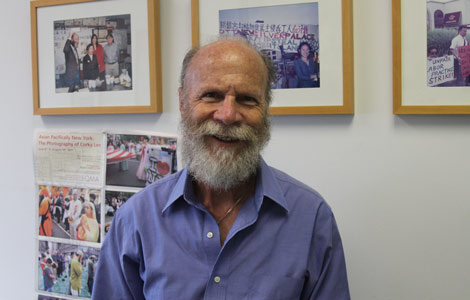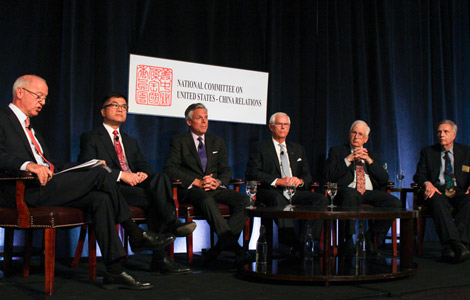European elections reflect consensus at EU level
Updated: 2014-05-26 09:55
(Xinhua)
|
||||||||
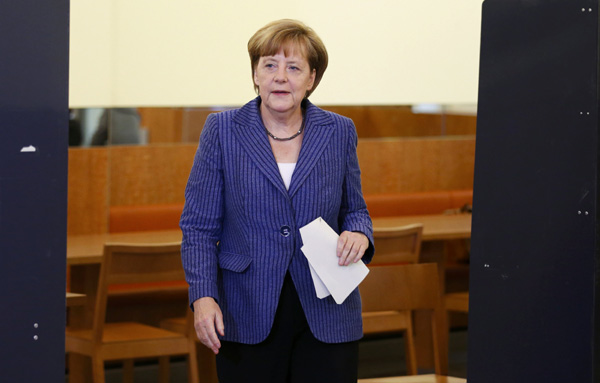 |
|
German Chancellor Angela Merkel arrives to vote in the European Parliament election at a polling station in Berlin, May 25, 2014. Germany, France, Spain, Italy and Poland are among the major EU member states voting on Sunday, representing the bulk of the 388 million Europeans eligible to cast ballots and elect the 751 deputies to sit in the European Parliament from 2014-2019. [Photo/Agencies] |
BRUSSELS - The outcome of the European elections reflected fundamental consensus for tackling various challenges at European Union (EU) level, a top EU official said on Monday.
When assessing the results of 2014 European elections, president of the European Commission, Jose Manuel Barroso said in a statement that a very solid and workable majority in the European Parliament is possible.
Official estimated result of the European elections showed on May 25 that the European People's Party (EPP) group took 212 out of the total 751 seats in European Parliament while 186 went to the socialists, or the Group of the Progressive Alliance of Socialists and Democrats (S&D).
"Conditions are there for a solid support for a European Union that remains united and open whilst seeking to be stronger. Standing together as Europeans is indispensable for Europe to shape a global order where we can defend our values and interests, " Barroso said.
"This is the moment to come together and to define the Union's way forward. The concerns of those who voted in protest or did not vote are best addressed through decisive political action for growth and jobs, and through a truly democratic debate," Barroso added.
The result also showed anti-EU sentiment emerging with the far-right National Party (FN) topped France's European Parliament ballots.
But Barroso insisted that the EU could bring benefit to citizens across all member states.
"I am confident that the overwhelming majority of the members of the European Parliament elected today will meet this challenge and seize this unique opportunity to deliver tangible benefits for the European citizens," he said.
For four days from May 22 to May 25, 400 millions voters in 28 European states are called to the polls to elect their EP deputies. For the first time, the president of the European Commission must be approved both by the European Council and the European Parliament.
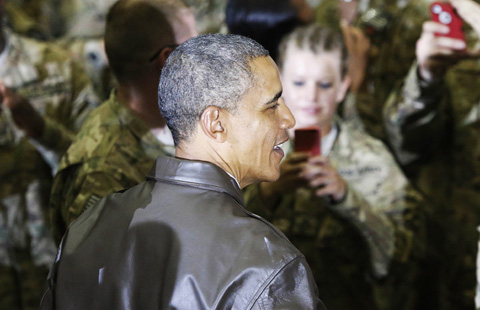
 US president pays surprise visit to Afghanistan
US president pays surprise visit to Afghanistan
 Forum discusses strategies to realize Africa's promise
Forum discusses strategies to realize Africa's promise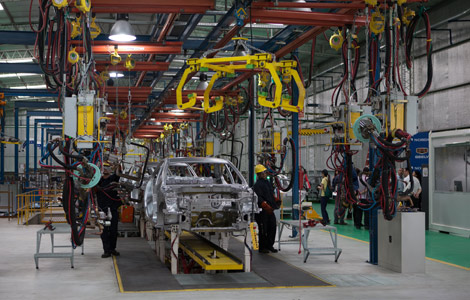
 South America is prime market for Chinese automakers
South America is prime market for Chinese automakers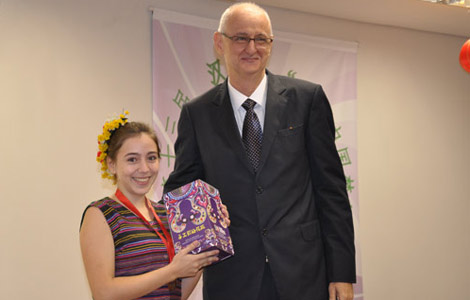
 Brazil names winners for 'Bridge' finals
Brazil names winners for 'Bridge' finals
 37,000 US flags planted in Boston for Memorial Day
37,000 US flags planted in Boston for Memorial Day
 The multibillion-dollar house that Jack built
The multibillion-dollar house that Jack built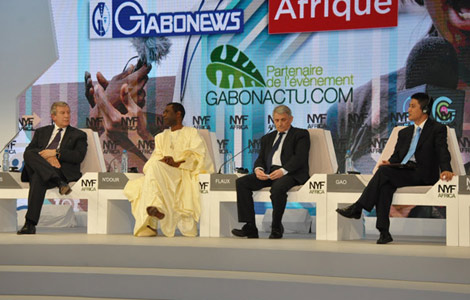
 Highlights of New York Forum Africa
Highlights of New York Forum Africa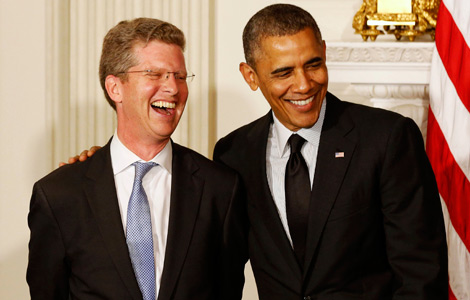
 Obama picks Director of OMB, new Secretary of HUD
Obama picks Director of OMB, new Secretary of HUD
Most Viewed
Editor's Picks
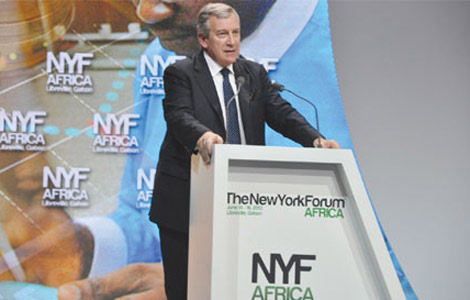
|

|

|

|

|

|
Today's Top News
Obama pays surprised visit to Afghanistan
Children from China enroll in US summer academic camps
Senator to renew gun control push
Obama pledges to uphold 'sacred trust' with veterans
22 dead in south China rainstorms
7 dead in drive-by shooting in California
US cyber-scoundrelism to backfire
Van Gogh, Monet works going to US
US Weekly

|

|

